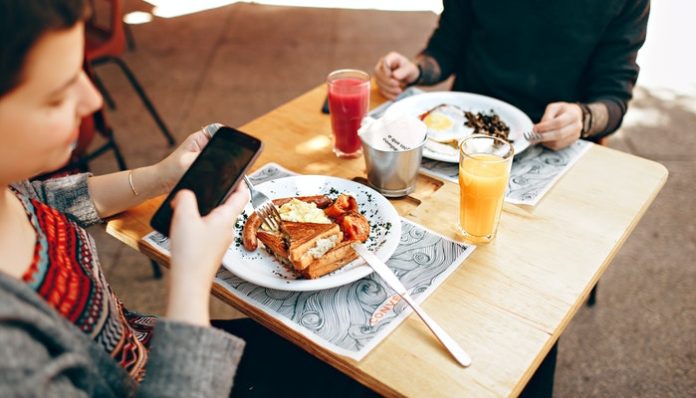
Trigger Warning: If you live with an eating disorder, the following post could be potentially triggering. You can contact the Crisis Text Line by texting “NEDA” to 741741.
Now that our state is finally lifting restrictions, a friend and I recently decided to make the nearly 45-minute excursion to one of our favorite restaurants: The Cheesecake Factory. We enjoyed delicious food and great conversation before we, of course, ordered cheesecake. Without thinking, I pulled out my phone and started turning my slice of heaven to find the best angle for its Instagram debut. After a moment of silence, my friend chimed in: “Are you going to tag me in that?”
As soon as the words spilled out of her mouth, I realized a very serious issue — I triggered her eating disorder.
There’s no denying that social media plays a critical role in many people’s lives. While many of us enjoy our friends’ candid shots and vacation pictures, these same images cause stress and shame for thousands of people who battle mental and physical health conditions. Some people simply experience FOMO (fear of missing out) or loneliness. Others, like my friend who constantly struggles with her eating disorder, quickly panic over their food choices and body image.
In fact, a recent study by FitRated exposed a serious issue with the influence of Instagram:
1 in 3 women feel self-conscious about their eating habits because of what they see on social media.
This issue is compounded even more due to the influx of dietitians, nutritional experts, chefs and certified personal trainers who use social media to share their knowledge with the general public free of charge. A study by the University of Pittsburgh determined that people who follow food- or health-related Instagram accounts are more than twice as likely to experience body image issues or engage in unhealthy eating habits. Furthermore, there’s an entire movement on social media dedicated to pro-anorexia behaviors and “thinspiration,” and open access to these types of accounts can pose deadly threats to people in recovery from eating disorders.
The easiest way to keep yourself from engaging in unhealthy habits from Instagram is to limit your time on social media altogether. However, even if you don’t delete your Instagram account completely, you can find ways to use it for healthy purposes without compounding your body image issues or disordered eating. When following health-related Instagram accounts, verify the person’s credentials and make sure they’re qualified to give advice and their “advice” promotes balanced eating and body positivity, not fad diets, compulsive trends, or weight loss. After all, if it sounds too good to be true, then it’s probably not a habit you want to take up.
Also, take some time to identify your triggers and take conscious steps to avoid them.
Unfollow accounts that don’t fit into your recovery-oriented life and avoid any posts that start with a “trigger warning” or “content warning” label. If friends or family members post triggering material, discuss this with them. Many of them, myself included, don’t post pictures with the intent to harm, so educate us and allow us to change.
Finally, share your own recovery journey on social media if you feel comfortable doing so. Although opening up in such a vulnerable way can feel scary, you never know how much your honesty will help others struggling with the same challenges. Remember that, no matter what, your story matters and, if you’re willing to share, it can change the world in positive ways.
If you or someone you know is struggling with an eating disorder, you can call the National Eating Disorders Association Helpline at 1-800-931-2237.
Previously Published on The Mighty
Feature Image via Pexels


















